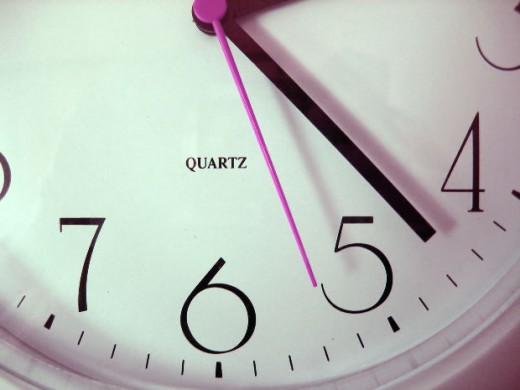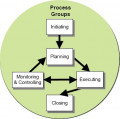Time and Energy Management
Time management is one of my favorite subjects to talk about. Not only is it the one thing that helps me get things done and keeps me from going insane, it also allows me to tell about the time that I walked in late to a time management lecture.
When I was in college, we had to attend a certain number of convocations before we could graduate. We could choose which ones we went to, as long as they added up to that number. As a commuting student who also worked a part-time internship, convocations always seemed like a waste of time.
On that particular day, I knew that time management was the subject, but I was busy. I had homework to do, test to study for, and papers to write. So in my mind, my time was better managed by working on those important things. Being a little late to the convocation wouldn’t hurt anything… as long as I got the credit I needed.
I’ll never forget the humiliation of opening the door to the packed out school auditorium and having the speaker yell at me from the stage. “You!” He shouted and everyone turned to see who had the audacity to walk in late, “Yes you! You need this more than anyone here! You have no idea how to manage your own time!”
To be perfectly honest, I have no recollection of anything else that man said. Instead, I quickly found a seat in the back row, slid down low, and read one of my text books in the dim auditorium lighting. I had never been so embarrassed or angry in my entire life.

Since then, I have become aware of the principles of time management. I’ve learned that if you don’t manage your time wisely, then it will manage you. Any time you want to accomplish anything great and keep your head above water, learning to manage your time will make all the difference in the world.
Most people think of time management as keeping an organized calendar, having a series of to-do lists, and not having the freedom to do what you feel like when you feel like it. I, however, don’t look at time management that way. Instead I like to think of it as time and energy management. If I learn to manage my time and energy, then I will become freer to do the things I want. By being in control of my day, I refuse to let the clock or the calendar control me.
What’s the difference?
Time and energy management isn’t about trying to get an inhumane amount of work done in a short time. Instead, it’s about knowing yourself, knowing what you’re capable of, when you’re the most productive, and how much time you need for rest and recreation. It isn’t about cramming the most tasks into your day, it’s about getting things done and still getting the most out of life.
Time and energy management isn’t about following a system. No one else will have the same work capacity and the same energy levels as you do. You may find a time management system that works for a while, but in the long run, you’ll become frustrated and exhausted. Time and energy management is about understanding how you work and what works for you.
Time and Energy Management Tips:
- Be realistic. Over-scheduling, or being too optimistic will prove stressful.
- Use available tools to help, calendars on your computer or phone are helpful. Set up reminder alarms for important meetings or appointments.
- Break large projects down into smaller tasks.
- Plan ahead to make the most of your time.
- Schedule time to relax and time to be alone. Don’t try to cram everything into each moment.
Are you a morning person or a night owl?
Knowing the answer to this question is the first step in learning how to manage your time and energy. Personally, I am a morning person. My brain shuts down at 8:00 pm and I’m done for the night. That is my time to relax and not do anything productive. If I try to do work after 8:00 pm, I know it will be a disaster.
Early in the morning, however, my brain comes to life. I can easily be up by 5:00 am and get an incredible amount of work done. This is when I do my writing, pay my bills, or read personal growth or leadership books. I’ve learned to make the most of the most productive time of my day.
Many people operate on an opposite schedule. I know that they are countless night owls out there who are never awake to see 5:00 in the morning. That’s fine. Their energy comes at a different time. They can stay up late and get a great deal of work accomplished.
Sometimes your own periods of energy change. When my children were little, I was exhausted by sleep deprivation in the morning and wiped out from running after them during the day at night. Back then, my most productive time of the day was mid-day when they children took their naps.
If you don’t know what time of the day is the most productive for you, make an effort to find out. Think about how you’ve spent your days during the last few weeks. When were you able to get the most done? When did you feel your best? When did you have more energy? When were you tired and spent?
Plan accordingly:
Once you know your most productive time of the day, you can plan your day around that. Because I know that I am a morning person, I plan to do the most work during the morning hours. That is when I get the most work done at home, and before noon is when I can get the most work done at the office.
One day, however, I noticed that some days were less productive than others. I realized that any time I had a meeting in the morning; I was less productive the rest of the day. The meeting threw off my energy levels. I don’t always have control over the times when I have to attend morning meetings. Therefore, in order to make the most of my time and energy, I began to schedule other necessary meetings on the same day.
By building one or two meeting days, I freed up the other days of the week to get the rest of my work done. This makes the best use of my productive morning hours.
How can you manage your time around your energy levels? Think of creative ways to make the most of your day. If you found this Hub helpful, please vote it up and leave a comment in the section below. Thanks for reading!

![The Knot Ultimate Wedding Planner & Organizer [binder edition]: Worksheets, Checklists, Etiquette, Calendars, and Answers to Frequently Asked Questions](https://m.media-amazon.com/images/I/41-66kXc-lL._SL160_.jpg)








